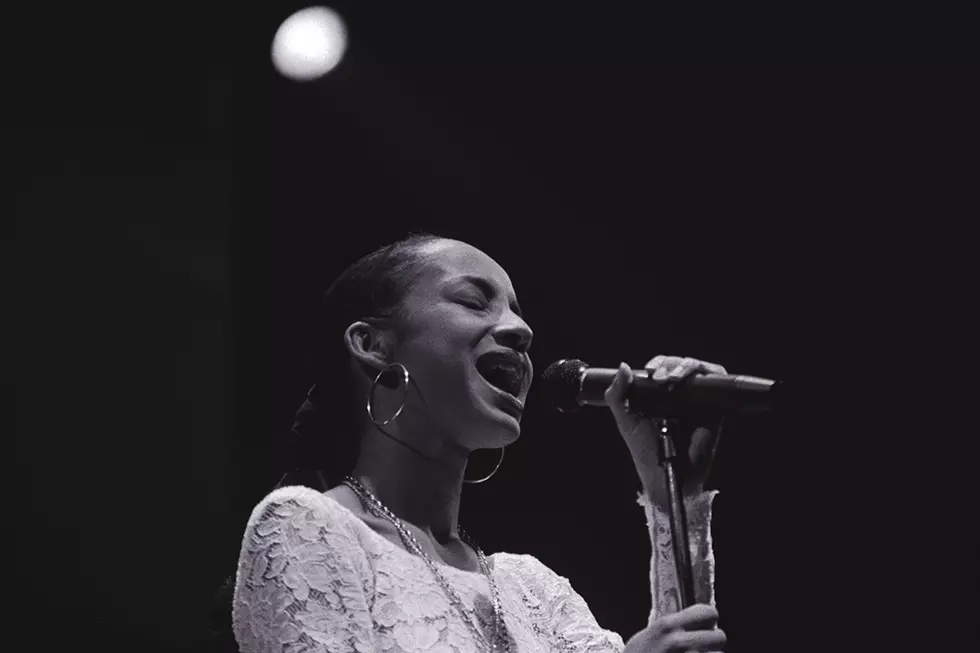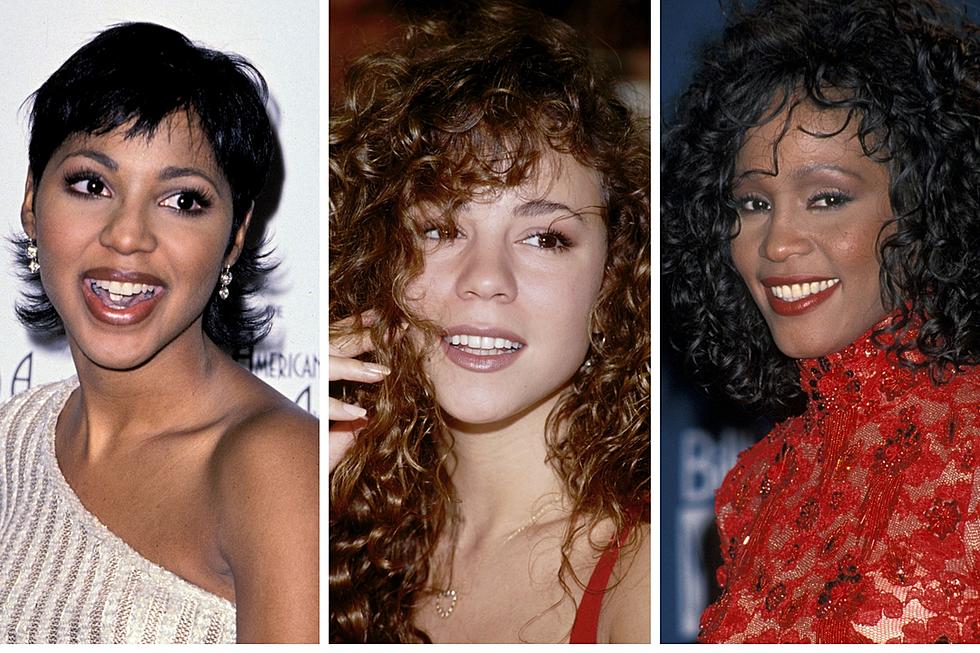
Sade’s ‘Stronger Than Pride’ Album Still Strong After 30 Years
In terms of sheer impact and influence, the 1980s was a groundbreaking decade for R&B, with an array of new talent being introduced to the public during this period, R&B would reign supreme, thanks in large part to acts like Prince, Anita Baker, Luther Vandross and other premier talent.
However, one group that would emerge from the shadows to make a big impact on the genre would be Sade, a band of musicians from England fronted by their namesake and lead-singer, Sade Adu, who would become one of the biggest stars in music, with a style unique to her own. And no Sade album made a bigger impact than Stronger Than Pride.
The genesis of Sade can be traced back to Pride, a Latin soul band that included musicians Stuart Matthewman (guitars and sax), Paul Denman (Bass), and Paul Anthony Cook (keyboards), as well as then-backup singer Sade Adu, all of whom would join forces and branch off from the group in 1982. Although Sade's debut live performance as a unit was in support of Pride, the quartet would decide to cut ties with their former group for good in 1982, later adding keyboardist Andrew Hale into the fold. Following appearances in the U.S. at popular venues like Danceteria Club in New York City, Sade would eventually score a record deal with Portrait Records in October 1983 (which would be absorbed by Epic Records in 1986), setting the stage for the band's debut studio album Diamond Life, which was released in 1984.
Spawning the hit single "Smooth Operator," Diamond Life was an international success, reaching No. 1 in several countries and peaking within the Top 10 in the U.S., where it would sell more than four million copies alone. Sade's success would make the band the hottest new act in Britain and announce Sade as one of the rising stars in R&B, drawing in listeners with her airy, yet sultry vocals and exotic features. In 1985, Sade's popularity stateside would be further confirmed with a pair of nominations at the second annual MTV Video Music Awards ("Best Female Video" and "Best New Artist"), as well as internationally, as they would take their show on the road, embarking on their first international tour.
In late 1985, Sade would return with their follow-up to Diamond Life, Promise, which would become the band's first release to top the charts in the US, with over four million copies sold, evidence that the group was no fluke and indeed one of the biggest acts in all of music. Promise would garner Sade further acclaim and fanfare, earning them the Grammy Award for Best New Artist, as well as an American Music Award for Favorite Soul/R&B Female Video Artist, cementing her as one of the standard bearers of the Quiet Storm sound that would dominate the '80s. The hit records "Sweetest Taboo" and "Is It A Crime" would join "Smooth Operator" as some of the most popular Quiet Storm cuts of all-time, putting Sade in a league of their own as a jazz-inspired quartet unconcerned with trendy whims, but still capable of crossing over into the mainstream while keeping a relatively low profile.
In fact, it would be lead-singer and the group's star Sade Adu's penchant for seclusion that would become part of the band's identity during the period between Promise and their third studio album, Stronger Than Pride, which would be released in 1988. Aside from making her acting debut as Athene Duncannon in the 1986 British film, Absolute Beginners, and lending her vocals to the film's accompanying soundtrack, Sade would be cryptically silent on the musical front, as well in print, as she would opt to refrain from doing many interviews as a result of her disdain for journalists attempts to interpret her music and compare it to that of her contemporaries. However, during the few interviews she granted during the press run for Stronger Than Pride, Adu gave valuable insight into what led to the group's lengthy hiatus between albums. "One of the reasons the album is how it is because allowed to be and it was quite free it was allowed to be that way," the songstress explained. "And I was away from the media, I was away from any suppression from the record company. We were all sort of in our own little environment and I think, if anything, that comes through on the album."
When Stronger Than Pride, the most highly anticipated of Sade's career, finally arrived on April 5, 1988, it was received with open arms during what was one of the more competitive years for music in terms of artists battling it out for record sales and chart position. Peaking at No. 7 on the Billboard 200, Stronger Than Pride would fall slightly short of the success enjoyed by Diamond Life and Promise, but is ultimately remembered as one of the band's more ambitious and cohesive efforts to date. Beginning with the album's title-track, which doubles as its opening salvo, Sade Adu wastes no time greeting listeners with her delicate alto, professing her love with lyrics like "I can't hate you/Although I have tried/I still really really love you/Love is stronger than pride" over tumbling percussion.
After setting the tone with "Love Is Stronger Than Pride," Sade ratchets up the tempo with "Paradise," which boasts an infectious bassline, complemented by drums, guitar riffs, and keys. "I'd wash the sand off the shore/Give you the world if it was mine," Adu purrs as she fantasizes of sharing intimacy with a potential lover on what has become one of the British sensation's most recognizable singles to date. "Paradise" would be Sade's first single to reach number one on the Hot R&B/Hip-Hop Songs chart, where it stayed for one week, and was ultimately the biggest record released from Stronger Than Pride. Building on the momentum, Sade employs rollicking guitars on "Nothing Can Come Between," a straight-forward jam which leans more towards contemporary R&B and includes additional vocals by Leroy Osbourne, who appears throughout the album, including the standout "Keep Looking."
Motivational in nature, "Keep Looking" contains one of Adu's more impassioned vocal performances on Stronger Than Pride, throwing caution to the wind while belting the song's hook and grunting ad-libs, wrinkles that are slightly off-script for the measured vocalist. Infamous for the mellow slow-burners that have proved to be not only their signature but their claim to fame, Sade throws a curve-ball with "Turn My Back On You," which finds Adu using her vocals as an instrument in itself, blending in with the funky mid-tempo riffs courtesy of her group-mates. Frantic percussion serves as the foundation of "Give It Up," a sparse composition, on which Adu commands "surrender your love to me," before launching into "I Never Thought I'd See The Day," a track that captures the singer in the eye of the storm, backed only by keys and synths, resulting in one of the more intimate offerings on the album and a cherished deep cut in the band's discography.
Wrapping the proceedings with Stronger Than Pride's closing number "Siempre Hay Esperanza," Adu takes a backseat as Sade implement a little Latin funk into their cipher as the band's musicians get a chance to shine in their own right, with each delivering a masterful solo, ending the album in grand fashion. When all was said and done, Stronger Than Pride would become another multi-platinum success for Sade and crew, but fell short of the seismic success of Diamond Life and Promise, stalling out at three million copies sold. However, Stronger Than Pride is remembered as one of the stronger albums of 1988 and one that would help set the template for British acts like Soul II Soul, Caron Wheeler, The Brand New Heavies, Simply Red, and Lisa Stansfield, all of whom would be embraced in the U.S. market in the wake of its release.
Unleashing three studio albums in the time since Stronger Than Pride's release (1992's Love Deluxe, 2000's Lovers Rock, and 2010's Soldier of Love), Sade has maintained its reputation as being one of the enigmatic and unpredictable group's in music, with a knack for excellence and precision that sets them apart from the pack. And even thirty years after the fact, Stronger Than Pride remains a testament to their greatness; is synonymous with one of the best calendar years in R&B; and is a body of work that has been able to resonate beyond its time, making it a certified classic and a gem in Sade's catalog.
20 Best R&B Albums of 1997
More From TheBoombox
![[Exclusive] The Sade Project Wants Your Best Tribute to the Iconic Singer](http://townsquare.media/site/625/files/2018/07/Screen-Shot-2018-07-28-at-8.01.33-AM.png?w=980&q=75)







![Drake Really Loves Sade — Gets Another Tattoo of the R&B Legend [PHOTO]](http://townsquare.media/site/625/files/2017/06/Drake-Really-Loves-Sade.jpg?w=980&q=75)
